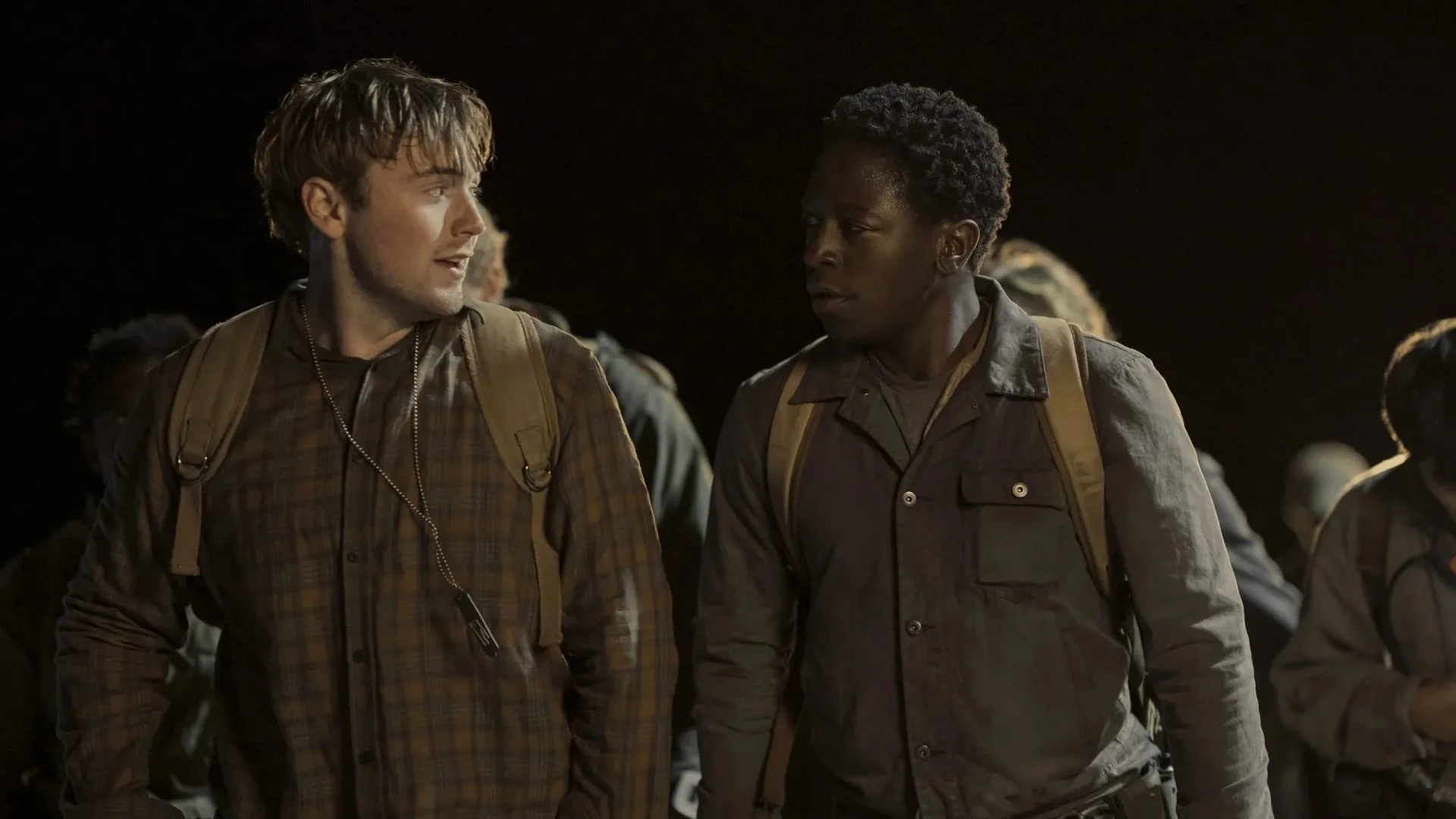How THE LONG WALK Movie Changes Stephen King’s Original Ending From the Book
It has been a stacked year for Stephen King fans. We’ve already seen Osgood Perkins’ The Monkey, Mike Flanagan’s The Life of Chuck, MGM+’s The Institute, King’s new novel Never Flinch, and even his illustrated spin on Hansel & Gretel. And the King train isn’t slowing down, with HBO Max’s It: Welcome To Derry and Edgar Wright’s The Running Man still ahead.
But this week, all eyes are on Francis Lawrence’s The Long Walk, a haunting new adaptation that’s already generating a lot of conversation thanks to its brutal, game-changing ending.
The film is remarkably faithful to King’s 1979 novel, yet when it comes to the finale, it takes some interesting and darker alternate directions. Watching it unfold is shocking, and while at first the ending feels infuriating, the more it sinks in, the more it feels like the right way to close this story.
Let’s break down exactly how the movie diverges from King’s original ending, and why it may actually be even darker.
The conclusion begins when the competition narrows to just Ray Garraty and Peter McVries. Stebbins, revealed to be the illegitimate son of the Major, collapses after screaming for his death, leaving only the two boys to finish the Long Walk.
Crowds cheer as they wait to see who will win, but Peter decides to stop and insists Ray should claim the prize. Ray refuses, pushes him to keep going, and then unexpectedly halts himself, taking his final warning.
In a chilling moment, the Major personally executes him. Peter is crowned the winner, but instead of celebrating, he is crushed by grief.
When the Major asks about his prize, Peter doesn’t make the noble wish he had once promised, to change the rules so two boys could survive. Instead, he echoes Ray’s original wish and asks for a soldier’s carbine.
Convinced Peter won’t throw away his victory, the Major doesn’t flinch when the gun is raised. Peter calmly says, “This is for Ray,” pulls the trigger, kills the Major, and then walks away into the distance.
It’s a devastating finish, one that transforms the already bleak narrative into something even heavier.
In King’s novel, the last three walkers are the same, but their exits are different. Peter is the first of the trio to go, choosing to sit down and accept death rather than continue. That leaves Garraty and Stebbins, and while Garraty believes he can’t possibly outlast the Major’s son, Stebbins suddenly collapses, handing Garraty the win.
But Garraty doesn’t get a moment of triumph. As the crowd cheers, he hallucinates another competitor still walking ahead. Broken beyond repair, he keeps going, chasing a phantom opponent into oblivion.
Where the book leaves Garraty lost in madness, the film instead puts the focus on Peter’s grief and rage, pushing him to take revenge before continuing his walk. Both are harrowing, but the movie adds an element of pointed defiance.
King’s novel was written during the Vietnam War era, when the idea of teenagers being sacrificed by a system they had no control over was disturbingly relevant. That metaphor still hits today, but the film adapts it for a new generation. Young people aren’t being drafted into war, but they’re still being crushed under broken institutions, poverty, food insecurity, and gun violence.
Screenwriter J.T. Mollner leans into that, tying the ending to the “wish” element of the contest. In the film, Ray had always wanted revenge, hoping to win a gun so he could kill the Major.
When Peter inherits that wish and follows through, it highlights how the system has corrupted them both, stripping away any chance of innocence. The final act isn’t about victory, but about destruction, and about how society breaks its children long before they ever reach the finish line.
The Long Walk was the first novel King ever wrote, and nearly fifty years later, it’s still uncomfortably relevant. Whether you prefer the book’s surreal spiral into madness or the movie’s vengeful, bitter rebellion, both versions leave you unsettled. That’s the point.
The film’s ending may feel like a gut-punch, but it forces the audience to sit with the same despair and futility that the boys endure. It’s a story that doesn’t let you off easy, and that’s exactly why it lingers.
The Long Walk is now playing in theaters, though be warned, once you’ve experienced its conclusion, you may not be in a hurry to revisit it anytime soon.
